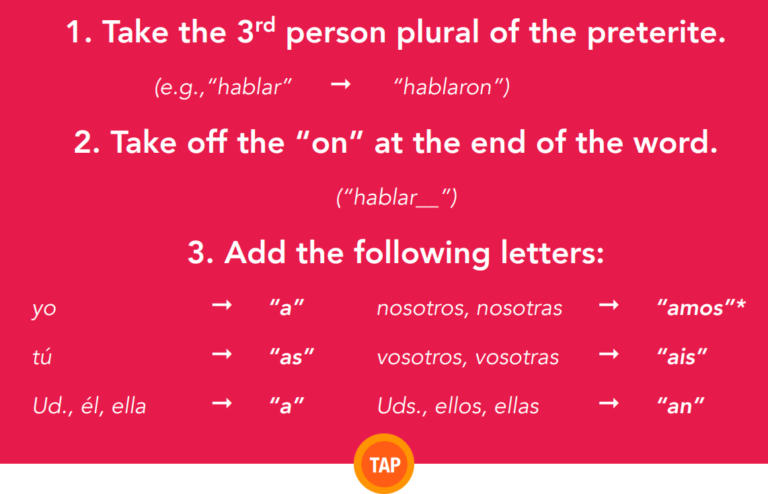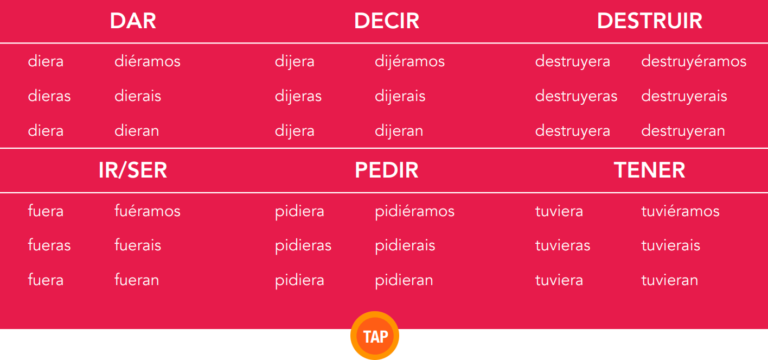LECCIÓN 6 / Advanced

EL IMPERFECTO DEL SUBJUNTIVO
We have learned that the subjunctive is used with commands (Lección Cuatro) and after verbs of emotion (Lección Cinco). All examples of the subjunctive thus far have referred to action in the present or in the future.
What form do we use, however, when the verb in the main clause is in a past tense, or when the action in the dependent clause is in the past?
The imperfect subjunctive and the pluperfect subjunctive are the two tenses used. The imperfect subjunctive is found in dependent clauses (after “que”) usually describing action in the past. The main clause will be either in a past indicative tense (preterite, imperfect, pluperfect, conditional), or possibly in a present or future tense.
This lesson will look only at the past subjunctive tenses used after a command or verb of emotion.

My grandma wanted me to visit her every
Sunday.
I hope that Cristiano Ronaldo’s team won the
game yesterday!
durante su segunda temporada en la NBA.
I’m glad that Ricky Rubio played so
well during his second season in the NBA.
Were you sorry that Elián González returned to
Cuba?
I would like you all to buy other Eva Ayllón
CDs.


What is great about the imperfect subjunctive is that the above formula works for all verbs. If you know the preterite form of a verb, you can easily conjugate the imperfect subjunctive. If you’ve forgotten the preterite forms, review Lección Uno.
Here are a few more examples of the imperfect subjunctive:

Note: There is another way to form the imperfect subjunctive. Although the following conjugations are not as common, you will likely hear and see these forms at some point. This other imperfect subjunctive formula starts the same way:
1. Take the 3rd person plural of the preterite.
2. Now take off “ron.”
3. Finally, add “se, ses, se, semos, seis, sen.”
The imperfect subjunctive of “hablar” would be: “hablase, hablases, hablase, hablásemos, hablaseis, hablasen.”

Our parents told us that we had to attend a
university in Wisconsin.
My friends begged you to give them the report.
I hope that you all didn’t tell anyone anything
yesterday.
“I am glad that the other candidate didn’t
destroy my reputation,” said Rafael Correa, the
president of Ecuador.





